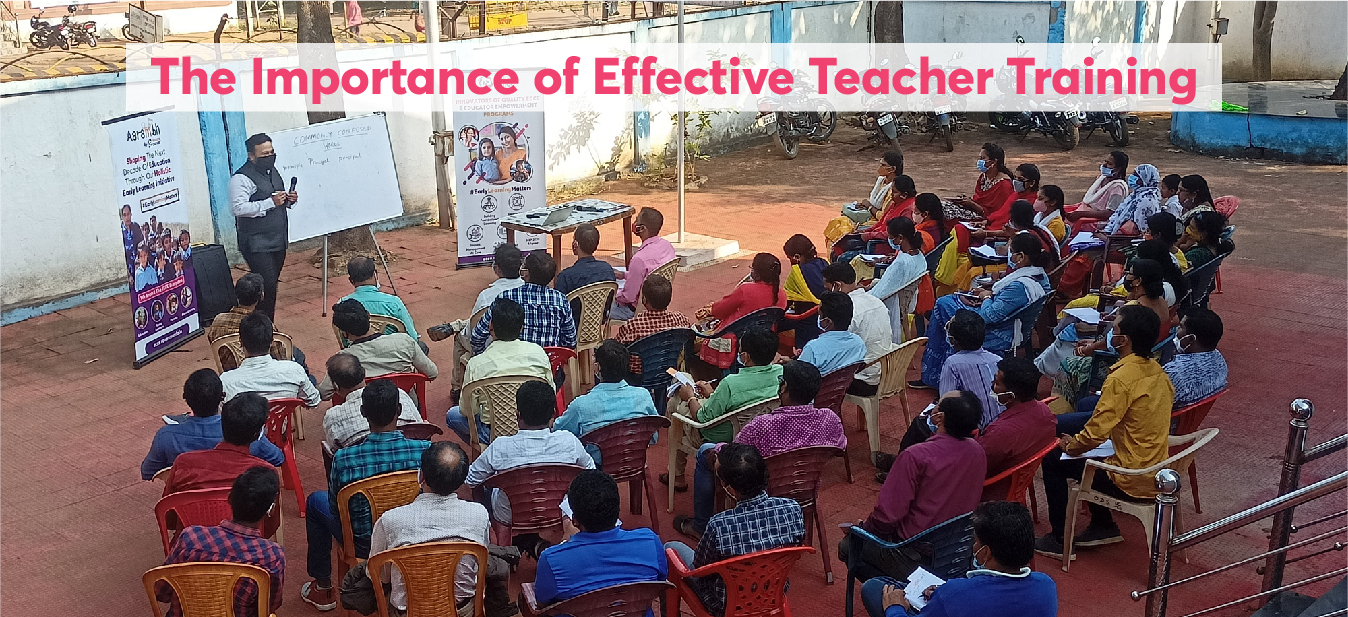Education plays a vital role in shaping the future of our country, as it helps develop a young student’s personality in a holistic manner and even significantly influences their career.
With the development of learning technologies and the advent of e-learning, today’s teachers are responsible for not just presenting classroom content but also adapting curriculum, providing feedback, and guiding real-time discussions in their classrooms. Teachers must produce much more material than they used to, while also keeping in touch with individual students who learn outside the classroom or through remote collaboration. This is where teacher training comes in. It provides opportunities to learn new skills and improve upon existing ones through professional development activities that are aligned with the school’s instructional goals.
If a teacher feels prepared for the challenge at hand and has the resources necessary to do their job well, they are more likely to perform at their peak capacity and positively impact student performance. As such, it’s essential that teachers receive effective training during their early years in the classroom.
Teachers who are not fully prepared to meet the needs of their students may fail to deliver quality instruction or provide support for struggling students. For example, a teacher who lacks content knowledge or teaching skills may struggle to engage all students in lessons or provide appropriate support for struggling learners. As a result, these students may lack progress towards achieving their academic goals and disengage from school altogether. In addition, schools with poorly trained teachers tend to have higher dropout rates, lower student achievement levels, and behavioural problems among students.
Why is Training Important for Teachers?
Teachers are the most valuable resources within a school system. They are responsible for developing young minds and helping children achieve their full academic potential. Teachers must be equipped with the knowledge and skills necessary to teach effectively. Teachers’ responsibilities extend beyond the classroom, too. They must counsel troubled students on professional and personal matters, enforce school rules, discipline unruly students, and participate in school events with pupils. Many issues affect children’s learning habits, such as poverty, abuse, or neglect. They should also understand how these issues can affect a child’s behaviour in school. Teachers should learn how to identify signs of emotional problems in students and how best to address them.
Teachers also play an essential role in helping students develop the social skills needed to succeed. Students learn to interact with others and share ideas and opinions with other people. Teachers must nurture these skills in their students to become good citizens who contribute to society.
To teach effectively, teachers must have a thorough knowledge of the subject they are teaching and good communication skills. They should be able to explain complex concepts clearly so that their students understand them easily. In addition, teachers must also have excellent interpersonal skills to motivate students who may find certain subjects difficult or tedious. Training teachers is an excellent way to ensure they are equipped with the necessary skills and improves their effectiveness to give every child a better chance at a good education.
Embracing Technological Advancements
The increasing demand for online courses combined with the technologically-savvy student population means that teachers must be adequately trained to use new technology in the classroom. From interacting with technology and its nuances to the criticality of a positive mindset, there is no denying the importance of teacher training in understanding online resources and methodologies that help them create a more compelling online teaching environment.
With more complicated subjects and demanding students, teachers need to be more knowledgeable about their subjects than ever. Teachers in all subjects need to reevaluate their teaching practices and skills initially to respond to changes within the classroom and new teaching methods. This means that they need Continuous Professional Development throughout their careers and during their training.
Although an online program may seem like an easy way out of a physical classroom setting, it requires just as much dedication as attending classes at a brick-and-mortar college campus does — if not more! It takes hard work and determination, just like any other type of education does! Teachers trained in an online environment tend to be more confident and knowledgeable about using technology in their teaching. In addition, they can create appropriate learning environments for students who may require extra support because of the physical or emotional challenges they face.
By working together and empowering our teachers, we can help spread the joy of the pursuit of knowledge to classrooms everywhere.
Square Panda India’s teacher training programs enable educators to teach students effectively and engage them on a personal level. We empower them to transform their classrooms into a space where students learn through personalization and collaboration. To know more, visit ecce.squarepanda.in

